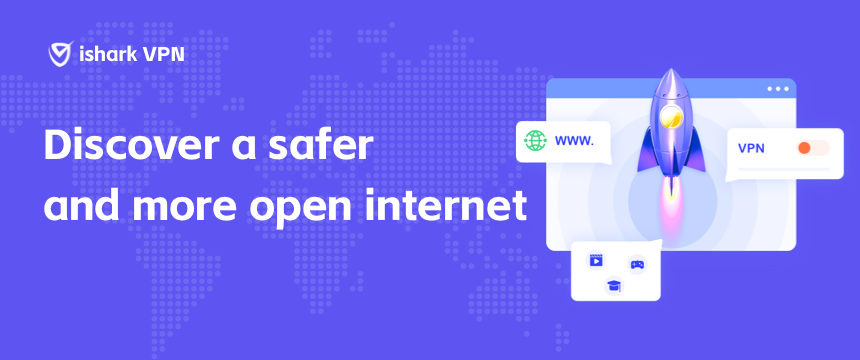Strengthening Public Wi-Fi Security: Safeguarding Mobile Device Data with VPN
ishark blog article
Public Wi-Fi networks have become an integral part of our daily lives, providing convenient internet access in cafes, airports, hotels, and other public places.
However, using public Wi-Fi networks can expose mobile device users to various security risks, including man-in-the-middle attacks and data theft.
To safeguard personal privacy and sensitive information, using a VPN (Virtual Private Network) on mobile devices has become increasingly important.
This article explores the security risks associated with using public Wi-Fi networks, emphasizes the significance of VPN usage on mobile devices, and provides practical scenarios where VPN can protect activities such as browsing, social media, and banking on public Wi-Fi.

Security Risks of Using Public Wi-Fi Networks
1. Man-in-the-Middle Attacks
Public Wi-Fi networks are inherently vulnerable to man-in-the-middle attacks, where cybercriminals intercept communications between a user's device and the network. Attackers can eavesdrop on internet traffic, steal sensitive information such as login credentials, and even modify the data being transmitted without the user's knowledge.
2. Data Theft
Unsecured public Wi-Fi networks expose users to data theft risks. Cybercriminals can employ various techniques, such as packet sniffing, to intercept unencrypted data and harvest sensitive information, including emails, passwords, and personal details.
The Importance of Using VPN on Mobile Devices
1. Data Encryption
VPN services provide a secure tunnel for internet traffic, encrypting all data transmitted between the user's device and the VPN server.
This encryption protects data from being intercepted and read by unauthorized entities, mitigating the risks of man-in-the-middle attacks and data theft.
2. Anonymity and Privacy Protection
Using a VPN masks the user's real IP address with the IP address of the VPN server, enhancing online anonymity and protecting personal privacy.
This prevents websites and online services from tracking the user's actual location and browsing activities.
Scenarios of Using VPN on Public Wi-Fi for Various Activities
1. Browsing the Web
When connected to public Wi-Fi, users often browse the web for various purposes. By using a VPN on their mobile devices, users can ensure that their browsing activities remain private and secure.
The VPN's encryption shields users from potential cyber threats, giving them peace of mind while accessing websites.
2. Social Media Interaction
Social media platforms are popular avenues for users to connect with friends, family, and the world. When using social media on public Wi-Fi, users may unwittingly expose sensitive information.
Employing a VPN ensures that social media interactions are protected from prying eyes and potential data theft.
3. Online Banking
Mobile banking is a common practice, but it comes with security risks on public Wi-Fi networks. Users need to safeguard their financial information from hackers.
Utilizing a VPN on mobile devices when accessing banking apps adds an extra layer of security, safeguarding financial transactions and personal details.

Conclusion
Public Wi-Fi networks have provided unprecedented convenience, but they also pose significant security risks.
To ensure mobile device users' data remains secure and private while using public Wi-Fi, employing a VPN has become an essential practice.
VPN offer data encryption, anonymity, and privacy protection, effectively safeguarding users from the potential threats of man-in-the-middle attacks and data theft.
By incorporating a VPN into their mobile devices, users can confidently browse the web, interact on social media, and perform online banking activities on public Wi-Fi without compromising their personal information.









